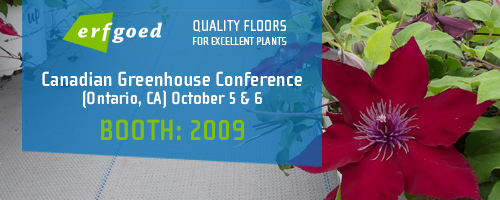Manufacturers Are Taking Biologicals To The Next Level
It takes a significant investment, and a leap of faith, for a grower to jump head-first into a relatively new trend such as biocontrols. But imagine if you’re the manufacturer of such products. A transition like this might have millions of dollars attached to it, to say nothing of the future viability of your company.
Yet that is exactly what several crop protection companies are doing, whether it’s through launching a new biocontrols product, or a conventional company acquiring another brand with years of experience in biocontrols.
Here’s how some of these companies make biocontrols are an important part of their offerings, how they position them as part of a pest control program and what the future holds for the use of biocontrols in the ornamental industry.
BioWorks (Jeff Luke, Marketing Manager)
Since our beginning in the early ’90s, our focus has consistently been on providing environmentally responsible, safe and effective products and programs for managing plant diseases, pests and nutrition — all being biological or biorational. It all ties back to our purpose, which is to create a safer environment and a healthier planet — ultimately, to be responsible stewards. Our product offerings are the most effective ways we can address our purpose on a large scale.
We are positioning the use of biologicals three ways:
• The first is as part of integrated disease and pest management programs. Because biologicals frequently work via non-toxic or multiple modes of action, they are excellent tools to manage pathogen and pest resistance to chemical pesticides.
• The second is as viable alternatives to strict chemical use. If growers are looking to reduce chemical use, for whatever reason, biologicals can in many situations equal and sometimes surpass chemical products in efficacy, convenience, cost in use, safety or any combination of these.
• Third, and the most obvious, is responsibly providing proven biologicals and biorationals to organic growers or those running sustainable or green operations.
We know that millennials are going to be a driving force in all markets, and they tend to navigate to businesses and brands that support their desire to live healthier and more sustainable lifestyles. Biologicals and environmentally responsible products will be in greater demand as consumer interest continues to shift in that direction.
Also, with the increasing cost of registering chemical pesticides, along with the risk of resistance development with many chemicals, more global pesticide companies are turning to development of biopesticides. The end result of this is that more biopesticides will be available to the ornamental industry.
Phyllom BioProducts (Kurt Schwartau, Business Advisory Board)
Phyllom BioProducts Corp. was founded by leading Bacillus thuringiensis (Bt) scientists with a history of developing these technologies for use both inside (traits) and outside the plant as biopesticides.
Phyllom is fortunate in that its Bt products can be stand-alone products. They are direct replacements for neonicotinoid chemistry for control of key pests such as the Japanese/Oriental/Asiatic garden beetle/Chafer adults or the grub stages, and offer a viable control option against emerald ash borer adults. In addition, because they only control certain susceptible beetles, they carry no bee or flowering plant label restrictions. Therefore, they may be used in an integrated pest management program at critical plant pollination stage without adverse risk to bees and other beneficial insects. Additional trials are planned on key ornamental pests such as leaf-feeding beetles.
The ornamental industry is leading the way in adoption of classic biocontrol via insect pest parasites. Microbial biocontrols are less costly to produce and offer the opportunity to manage both diseases and insect pests in IPM programs with the classic biocontrols such as parasitic wasps. Couple that with easier management decisions because of short re-entry intervals and zero-day preharvest intervals on edibles and they make decision making less stressful.
Syngenta Bioline (Ronald Valentin)
Syngenta’s history of BioLine, headquartered in the UK, came from a company called Bunting and Sons. There was an early interest in biological controls as part of a pest management approach. Back then it was mostly focused on the vegetable industry, especially hydroponics. About 10 years ago the interest in ornamental crops started to grow as well. In most cases, this has been driven by pesticide resistance. That’s where the greenhouse vegetable industry came from.
In North America we’ve seen problems in the last ten years with current thrips control chemistries. That drove growers to look for alternatives.
What we’ve learned over the years is that if a grower is interested in adding biocontrols, he has to look at what he is doing with traditional pesticides. Growers may start off using a traditional spray program and trying to fill the voids with biologicals. It’s hard to deliberately mix the two, but it’s not as if when you use a biological control program, you will never use a pesticide. I think Syngenta has focused on chemistries that are compatible. There are good products in the portfolio. Endeavor and Citation are two products that fit well in an ICM approach.
Moving forward, one big breakthrough we are seeing is in new breeding systems for predatory mites. That will continue to grow. If you look at the ornamental and vegetable industries, growers and researchers are looking at the earliest development stages of plant material and how to keep them clean. I think this propagation is something that’s very important. We’re also looking at a technique to include predatory mites in the production chain, propagation and cutting production.










